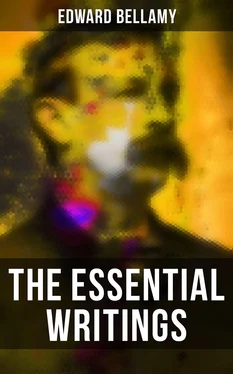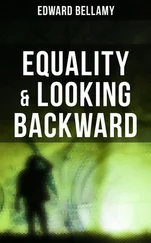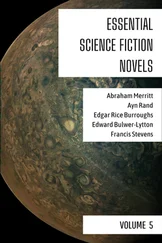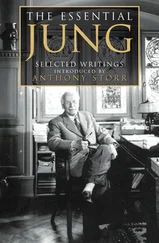Edward Bellamy - The Essential Writings of Edward Bellamy
Здесь есть возможность читать онлайн «Edward Bellamy - The Essential Writings of Edward Bellamy» — ознакомительный отрывок электронной книги совершенно бесплатно, а после прочтения отрывка купить полную версию. В некоторых случаях можно слушать аудио, скачать через торрент в формате fb2 и присутствует краткое содержание. Жанр: unrecognised, на английском языке. Описание произведения, (предисловие) а так же отзывы посетителей доступны на портале библиотеки ЛибКат.
- Название:The Essential Writings of Edward Bellamy
- Автор:
- Жанр:
- Год:неизвестен
- ISBN:нет данных
- Рейтинг книги:4 / 5. Голосов: 1
-
Избранное:Добавить в избранное
- Отзывы:
-
Ваша оценка:
- 80
- 1
- 2
- 3
- 4
- 5
The Essential Writings of Edward Bellamy: краткое содержание, описание и аннотация
Предлагаем к чтению аннотацию, описание, краткое содержание или предисловие (зависит от того, что написал сам автор книги «The Essential Writings of Edward Bellamy»). Если вы не нашли необходимую информацию о книге — напишите в комментариях, мы постараемся отыскать её.
Contents:
Novels:
Looking Backward: 2000–1887
Equality
Dr. Heidenhoff's Process
Miss Ludington's Sister
The Duke of Stockbridge
Short Stories:
The Blindman's World
An Echo of Antietam
The Old Folks' Party
The Cold Snap
Two Days' Solitary Imprisonment
A Summer Evening's Dream
Potts's Painless Cure
A Love Story Reversed
Deserted
Hooking Watermelons
A Positive Romance
Lost
With The Eyes Shut
At Pinney's Ranch
To Whom This May Come
The Essential Writings of Edward Bellamy — читать онлайн ознакомительный отрывок
Ниже представлен текст книги, разбитый по страницам. Система сохранения места последней прочитанной страницы, позволяет с удобством читать онлайн бесплатно книгу «The Essential Writings of Edward Bellamy», без необходимости каждый раз заново искать на чём Вы остановились. Поставьте закладку, и сможете в любой момент перейти на страницу, на которой закончили чтение.
Интервал:
Закладка:
“Poverty with servitude had been the result, for the mass of humanity, of attempting to solve the problem of maintenance from the individual standpoint, but no sooner had the nation become the sole capitalist and employer than not alone did plenty replace poverty, but the last vestige of the serfdom of man to man disappeared from earth. Human slavery, so often vainly scotched, at last was killed. The means of subsistence no longer doled out by men to women, by employer to employed, by rich to poor, was distributed from a common stock as among children at the father’s table. It was impossible for a man any longer to use his fellow-men as tools for his own profit. His esteem was the only sort of gain he could thenceforth make out of him. There was no more either arrogance or servility in the relations of human beings to one another. For the first time since the creation every man stood up straight before God. The fear of want and the lust of gain became extinct motives when abundance was assured to all and immoderate possessions made impossible of attainment. There were no more beggars nor almoners. Equity left charity without an occupation. The ten commandments became well nigh obsolete in a world where there was no temptation to theft, no occasion to lie either for fear or favor, no room for envy where all were equal, and little provocation to violence where men were disarmed of power to injure one another. Humanity’s ancient dream of liberty, equality, fraternity, mocked by so many ages, at last was realized.
“As in the old society the generous, the just, the tender-hearted had been placed at a disadvantage by the possession of those qualities; so in the new society the cold-hearted, the greedy, and self-seeking found themselves out of joint with the world. Now that the conditions of life for the first time ceased to operate as a forcing process to develop the brutal qualities of human nature, and the premium which had heretofore encouraged selfishness was not only removed, but placed upon unselfishness, it was for the first time possible to see what unperverted human nature really was like. The depraved tendencies, which had previously overgrown and obscured the better to so large an extent, now withered like cellar fungi in the open air, and the nobler qualities showed a sudden luxuriance which turned cynics into panegyrists and for the first time in human history tempted mankind to fall in love with itself. Soon was fully revealed, what the divines and philosophers of the old world never would have believed, that human nature in its essential qualities is good, not bad, that men by their natural intention and structure are generous, not selfish, pitiful, not cruel, sympathetic, not arrogant, godlike in aspirations, instinct with divinest impulses of tenderness and self-sacrifice, images of God indeed, not the travesties upon Him they had seemed. The constant pressure, through numberless generations, of conditions of life which might have perverted angels, had not been able to essentially alter the natural nobility of the stock, and these conditions once removed, like a bent tree, it had sprung back to its normal uprightness.
“To put the whole matter in the nutshell of a parable, let me compare humanity in the olden time to a rosebush planted in a swamp, watered with black bog-water, breathing miasmatic fogs by day, and chilled with poison dews at night. Innumerable generations of gardeners had done their best to make it bloom, but beyond an occasional half-opened bud with a worm at the heart, their efforts had been unsuccessful. Many, indeed, claimed that the bush was no rosebush at all, but a noxious shrub, fit only to be uprooted and burned. The gardeners, for the most part, however, held that the bush belonged to the rose family, but had some ineradicable taint about it, which prevented the buds from coming out, and accounted for its generally sickly condition. There were a few, indeed, who maintained that the stock was good enough, that the trouble was in the bog, and that under more favorable conditions the plant might be expected to do better. But these persons were not regular gardeners, and being condemned by the latter as mere theorists and day dreamers, were, for the most part, so regarded by the people. Moreover, urged some eminent moral philosophers, even conceding for the sake of the argument that the bush might possibly do better elsewhere, it was a more valuable discipline for the buds to try to bloom in a bog than it would be under more favorable conditions. The buds that succeeded in opening might indeed be very rare, and the flowers pale and scentless, but they represented far more moral effort than if they had bloomed spontaneously in a garden.
“The regular gardeners and the moral philosophers had their way. The bush remained rooted in the bog, and the old course of treatment went on. Continually new varieties of forcing mixtures were applied to the roots, and more recipes than could be numbered, each declared by its advocates the best and only suitable preparation, were used to kill the vermin and remove the mildew. This went on a very long time. Occasionally some one claimed to observe a slight improvement in the appearance of the bush, but there were quite as many who declared that it did not look so well as it used to. On the whole there could not be said to be any marked change. Finally, during a period of general despondency as to the prospects of the bush where it was, the idea of transplanting it was again mooted, and this time found favor. ‘Let us try it,’ was the general voice. ‘Perhaps it may thrive better elsewhere, and here it is certainly doubtful if it be worth cultivating longer.’ So it came about that the rosebush of humanity was transplanted, and set in sweet, warm, dry earth, where the sun bathed it, the stars wooed it, and the south wind caressed it. Then it appeared that it was indeed a rosebush. The vermin and the mildew disappeared, and the bush was covered with most beautiful red roses, whose fragrance filled the world.
“It is a pledge of the destiny appointed for us that the Creator has set in our hearts an infinite standard of achievement, judged by which our past attainments seem always insignificant, and the goal never nearer. Had our forefathers conceived a state of society in which men should live together like brethren dwelling in unity, without strifes or envying, violence or overreaching, and where, at the price of a degree of labor not greater than health demands, in their chosen occupations, they should be wholly freed from care for the morrow and left with no more concern for their livelihood than trees which are watered by unfailing streams — had they conceived such a condition, I say, it would have seemed to them nothing less than paradise. They would have confounded it with their idea of heaven, nor dreamed that there could possibly lie further beyond anything to be desired or striven for.
“But how is it with us who stand on this height which they gazed up to? Already we have well nigh forgotten, except when it is especially called to our minds by some occasion like the present, that it was not always with men as it is now. It is a strain on our imaginations to conceive the social arrangements of our immediate ancestors. We find them grotesque. The solution of the problem of physical maintenance so as to banish care and crime, so far from seeming to us an ultimate attainment, appears but as a preliminary to anything like real human progress. We have but relieved ourselves of an impertinent and needless harassment which hindered our ancestor from undertaking the real ends of existence. We are merely stripped for the race; no more. We are like a child which has just learned to stand upright and to walk. It is a great event, from the child’s point of view, when he first walks. Perhaps he fancies that there can be little beyond that achievement, but a year later he has forgotten that he could not always walk. His horizon did but widen when he rose, and enlarge as he moved. A great event indeed, in one sense, was his first step, but only as a beginning, not as the end. His true career was but then first entered on. The enfranchisement of humanity in the last century, from mental and physical absorption in working and scheming for the mere bodily necessities, may be regarded as a species of second birth of the race, without which its first birth to an existence that was but a burden would forever have remained unjustified, but whereby it is now abundantly vindicated. Since then, humanity has entered on a new phase of spiritual development, an evolution of higher faculties, the very existence of which in human nature our ancestors scarcely suspected. In place of the dreary hopelessness of the nineteenth century, its profound pessimism as to the future of humanity, the animating idea of the present age is an enthusiastic conception of the opportunities of our earthly existence, and the unbounded possibilities of human nature. The betterment of mankind from generation to generation, physically, mentally, morally, is recognized as the one great object supremely worthy of effort and of sacrifice. We believe the race for the first time to have entered on the realization of God’s ideal of it, and each generation must now be a step upward.
Читать дальшеИнтервал:
Закладка:
Похожие книги на «The Essential Writings of Edward Bellamy»
Представляем Вашему вниманию похожие книги на «The Essential Writings of Edward Bellamy» списком для выбора. Мы отобрали схожую по названию и смыслу литературу в надежде предоставить читателям больше вариантов отыскать новые, интересные, ещё непрочитанные произведения.
Обсуждение, отзывы о книге «The Essential Writings of Edward Bellamy» и просто собственные мнения читателей. Оставьте ваши комментарии, напишите, что Вы думаете о произведении, его смысле или главных героях. Укажите что конкретно понравилось, а что нет, и почему Вы так считаете.












